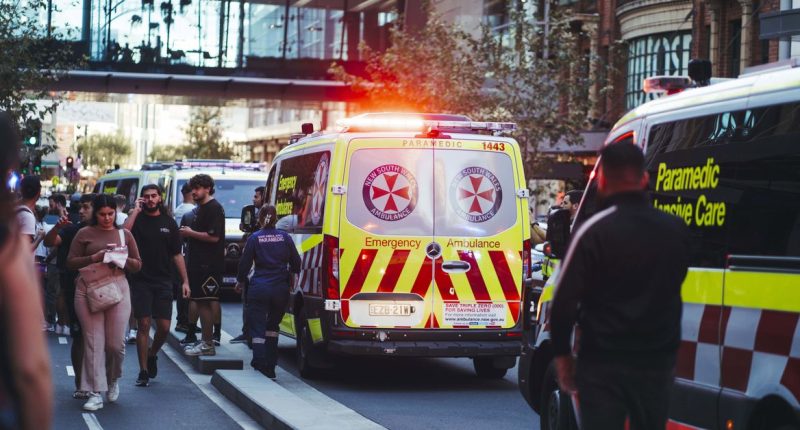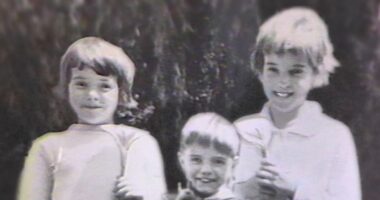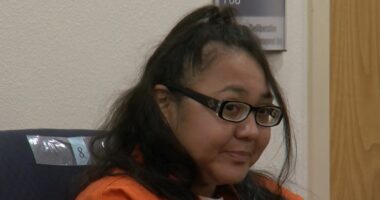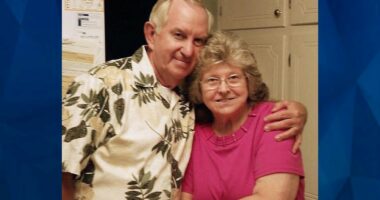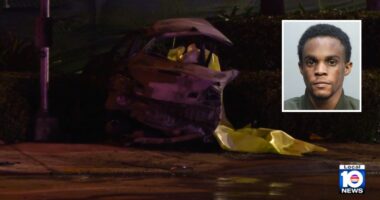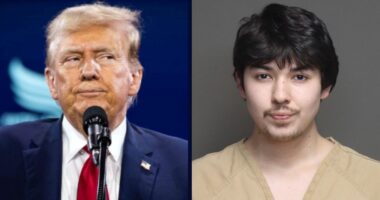Share this @internewscast.com
A former psychiatrist of the Bondi Junction shopping centre attacker has backflipped on a previous statement that the violence was spurred on by sexual frustration.
Joel Cauchi, 40, had armed himself with a knife when he fatally stabbed six shoppers at Sydney’s Westfield Bondi Junction and injured 10 others in April 2024.
The Queensland psychiatrist who treated Cauchi for eight years gave her opinion on the motivation behind the attack at an inquest yesterday.

“It might have been to do with frustration, sexual frustration, pornography and hatred towards women,” she said.
However, she reversed this evidence when she returned to the witness box otoday.
“It was a conjecture on my part and I should not have said what I said,” she told the NSW Coroners Court.
“And do you withdraw it?” asked barrister Sue Chrysanthou SC. representing the families of three of Cauchi’s victims Ashlee Good, Jade Young and Dawn Singleton.
“Yes,” the doctor replied.
Expert evidence provided to the inquest says Cauchi was “floridly psychotic” during the attack.

The officer-in-charge of the police investigation also previously told the coroner that there was no suggestion he had targeted women during the stabbing spree.
Diagnosed with schizophrenia as a teen, Cauchi had been successfully treated and remained compliant with taking his anti-psychotic medication.
But when he shifted from the public to the private system, he formed a plan with the psychiatrist – who cannot be legally identified – to gradually decrease his dosage.
By mid-2019, he was completely off the two antipsychotics he was taking.
He became detached from the mental health system entirely in early 2020 after moving to Brisbane right at the start of the COVID-19 pandemic.
The psychiatrist today apologised for “being short” with counsel assisting Peggy Dwyer SC during questioning yesterday.
“I’m suffering from acute pain, I’m on medication, I was late for my flight,” she said.
But she quickly became frustrated by Chrysanthou’s grilling, saying the barrister “did not have a degree in medicine” during a barrage of questions about blood tests and levels of antipsychotics.
“I have to educate you,” she said when asked whether an early warning sign of relapse was actually a sign of psychosis.
“I don’t want to be educated,” Chrysanthou replied.

The psychiatrist denied a connection between Cauchi being taken off antipsychotic drugs and months later developing an obsession with pornography and sex.
She also dismissed his wanting to take HIV anti-viral drugs after a single visit to a brothel as a sign of paranoia.
The doctor also defended her initial assessment of Cauchi in 2012 as having first-episode schizophrenia, despite him exhibiting symptoms in 2001, 2002 and 2008.
She, however, conceded she had not passed on her diagnosis to Cauchi’s GP.
The court was told this differed from her earlier claims that she had a detailed conversation with the GP when she discharged Cauchi in March 2020.
No records of a phone call existed, and the first suggestion about the claimed conversation appeared in the psychiatrist’s second statement to police in 2025.
A discharge letter to the doctor, shown to the court, told him that Cauchi needed a referral to an alternative psychiatrist “if required” and did not list any details about what treatment he’d received.
“I was satisfied that I did the right thing,” the psychiatrist told the court.
The five-week inquest, probing Cauchi’s mental health care as well as emergency services’ responses to the attack, continues.
